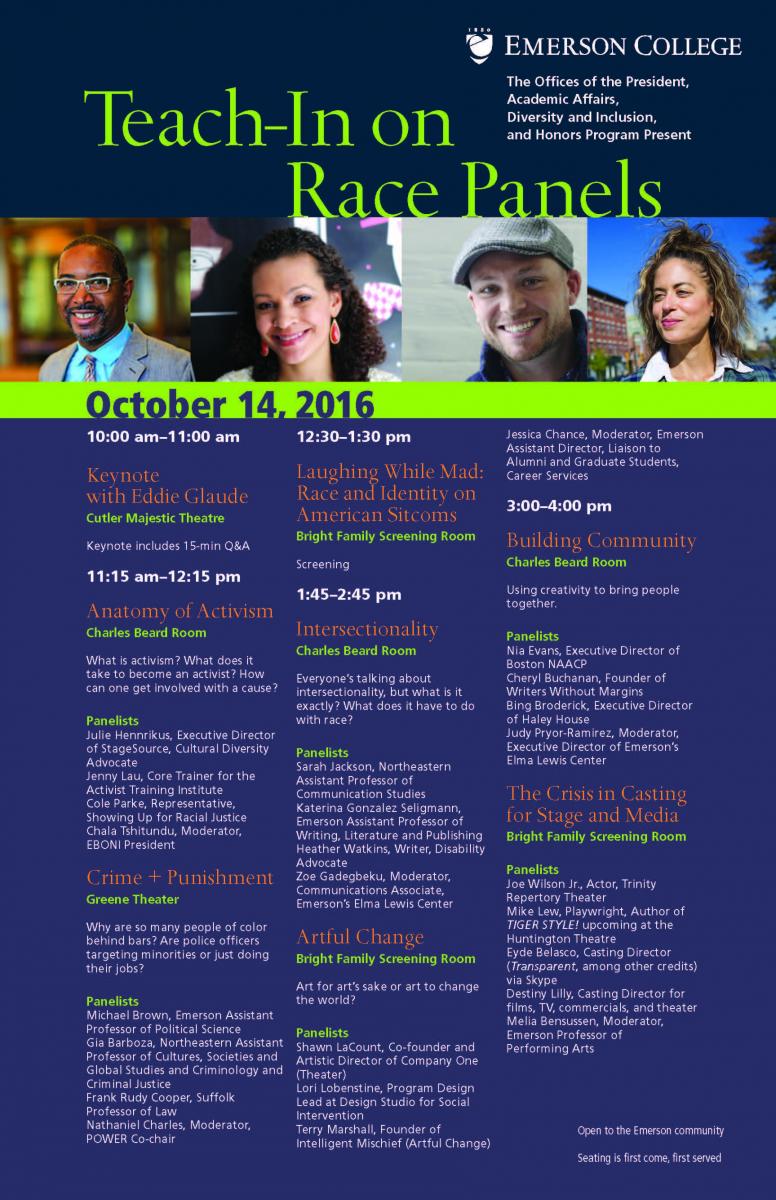Panelists Talk About Doing the Work of Anti-Racist Activism

Once you see, you cannot un-see.
That was the dominant theme during “Anatomy of Activism,” a panel discussion held Friday, October 14, as a part of Emerson’s first Teach-in on Race, a day full of events to talk and learn about race.
Anatomy of Activism gathered four activists who have made an effort to do away with racial injustice: Julie Hennrikus, affiliated faculty at Emerson College; Jenny Lau, core trainer for the Activist Training Institute; and Cole Parke, representative of Showing Up for Racial Justice (SURJ). The discussion was moderated by Chala Tshitundu '18, president of Emerson’s Black Organization with Natural Interests (EBONI).
Glaude Speaks on “Value Gap” in American Society
Panelists talked about their experiences dealing with race and activism. Lau recalled an incident during her college days, when an American student threatened a group of Asian American students. While she wasn’t a part of that group, the incident was significant for her. That’s when she realized she had to do something about it.
“If I didn't stand up for what was right, if I didn't stand against what was wrong, nobody is going to do it,” Lau said.
Taking a stand became important for each of the panelists as they saw the ill effects of stereotyping. They decided to take action and shared their wealth of knowledge with the Emersonians.
“If you have privilege, you can get out of the trenches and stop pushing the boulder off the road, down the hill,” Hennrikus said. “But once you start doing it, you can’t stop, and it’s exhausting. But it is more exhausting for the folks who cannot get out of the trenches and stop pushing the boulder. So you have to keep doing it.”
The responsibility of doing away with this prejudice and injustice doesn’t lie with the discriminated, but it is with each and every person in the society. This belief, shared by all of the panelists, launched their community efforts.
“SURJ is a national network—people mobilizing white folks for racial justice, recognizing that white supremacy is a thing that we invented, so it is on us to dismantle it,” Parke said.
The discussion was followed by questions from the students. One question that sparked discussion was on breaking your silence when you hear or see racist activities.
“Every time, it doesn’t need to be serious,” Lau recommended. She added that if someone is drunk, it is better to tell them to “cut out” the racial slurs, instead of getting into a heated conversation with them.
For all panelists, their thoughts on activism did not just address big actions, but also the smaller gestures that could pave the way to a longer conversation on race and equality.
Categories